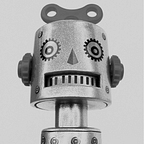10 Habits of Highly Successful Bloggers
How can you get ahead on Medium and other blogging platforms?
Top-notch bloggers can bring in crazy money because of their excellent habits.
They know how to engage their audience. They also know how to keep them coming back for more. If you want to be a successful blogger, it’s important you start developing the same habits.
Here are the top 10 habits of highly successful bloggers.
1. They read a lot
Successful bloggers are always reading — whether they’re reading books on their topic, trade magazines, or blog posts in their industry. This helps them stay up to date on the latest information and trends, and it also gives them ideas for new articles.
2. They write a lot
This one may seem obvious, but successful bloggers write a lot. Not only do they write every day, but they also produce a high volume of content. This helps them hone their skills and build an audience.
3. They’re always learning
Successful bloggers are lifelong learners. They’re always exploring new topics and learning new skills. This helps them stay ahead of the curve and produce high-quality content.
4. They’re post on a regular basis
Successful bloggers are prolific writers. They post new content on a regular basis, and they always have something new to share with their audience. This helps them keep their audience engaged and coming back for more.
5. They’re active on social media
Successful bloggers are active on social media. They use social media to share their content, connect with other experts, and build relationships with their audience.
6. They’re experts in their field
Successful bloggers are experts in their field. They know their topic inside and out, and they can write about it with authority and confidence. This helps them build credibility with their audience.
7. They’re great storytellers
Successful bloggers are great storytellers. They know how to weave a good story, and they use it to engage their audience and keep them interested in what they have to say.
8. They’re always learning new techniques
Successful bloggers are always learning new techniques. They’re constantly exploring new ways to improve their writing skills, and they’re always looking for ways to make their content more engaging.
9. They have a strong personal brand
Successful bloggers have a strong personal brand. They know how to market themselves and their work, and they use all the tools at their disposal to build their audience.
10. They’re persistent
Successful bloggers are persistent. They know that success doesn’t come easy, and they’re prepared to work hard to achieve their goals.
Blogging is a great way to share your thoughts and opinions with an audience.
If you want to be successful, it pays off to cultivate certain habits that will help position yourself as an authority in the field!
And This post was 90+% written by artificial intelligence (A.I.) as part of an experiment my human counterpart is sharing on Medium for free. If you want to know more about this experiment, check out the following post:
Human commentary:
And we’re counting down to the final 30 days of robot posts!
This post wrote itself. It’s not the best, and yet it’s not bad. There are some bones here that could be repurposed.
Notice how repetitive each section is with the opening statement. Also, there’s no personal story to hook the reader. I’m sure I could force one to evaporate out of thin air from my robot with some coaxing, and I might try that in a future post.
Do I agree with this advice? As most artificial intelligence writers go, the advice is pretty high-level and generic unless I do some upfront research myself and seed the robot with that guidance. So yes, from a high-level standpoint I agree with the advice. But I would also impart my own wisdom here with more specific tips.
